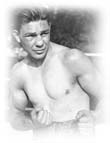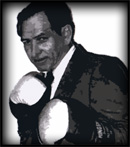The Greatest Knockout Artist
of All Time: ALCOHOL

“First the Man Takes a Drink, Then the Drink Takes a Drink, Then the Drink Takes the Man. ”
(Old saying: Corrupted from various sources: American Indians, F. Scott Fitzgerald, & Pliny the Elder)
Part I
Mario Lanza, a versatile and charismatic operatic tenor who was being compared to the great Caruso in the 1940’s and 50’s would have likely reached that wondrous pinnacle of success had he not let the bottle take him down entirely too early, a mere age 38. In “The Student Prince” on Broadway and in the movies, Lanza sang one of the most famous of all drinking songs, “Drink, Drink, Drink.” The song was infectious and since Lanza and his crew showed close camaraderie through the imbibing of booze, the audiences’, and I happened to be a member of one, may have felt justified in leaving the theater, gathering some friends, and getting down with some binge drinking of their own. If I recall correctly, I did manage to go to Juarez , Mexico with a few buddies and made a night and morning of the whole shebang. Fortunately, I wasn’t a heavy drinker because I had witnessed too many family members including my deceased father at age forty-four lose their estates, their minds, and their bodies. I wasn’t about to go that deadly route so I nursed a drink or two all through the night and into the wee hours of the morning while doing what I liked to do best, checking out the hot foxes. Yeah, I got lucky now and then and that tactic became my modus operandi for many years to come.
Last year, the former lightweight champion of the world, Mando Ramos, passed away at his home in San Pedro California at age 59. Ramos won his world title at the early age of twenty and the fast life followed. So did the booze; so did the hard drugs. The California Boxing Hall of Famer was kayoed by the double whammy of the demons which shortened both his career and pocketbook. He did spend the later part of his suffering years working with youngsters and attempting against the odds and influence of major booze marketing, rock idols, movie stars, television, and gangs, to avoid the pitfalls of leading a horrendous, worthless, devilish life and get on the fast track to having better health and a better life. We can praise him for at least trying. However, Ramos was just one of thousands of boxers or well known personalities who have been beaten to a pulp by booze. It seems that those of us who follow their careers never get it about the hazards associated with heavy partying and use of drugs, alcohol being the number one drug of choice and number one in taking down the best stars in every encounter, bar none. For the record, the following will be a short account of how some of history’s most famous battler’s succumbed to the all time KO Champ: ‘Alcohol’
A country western song I have kept in my gray matter for many decades, written by Joe Allison and sung by twanged voiced Faron Young in 1955, “ Live Fast, Love Hard, Die Young,’ is such an appropriate title for those who have chosen the booze path of destruction. Or as the American writer, Bertrand Russell so aptly put it, “Drunkenness is temporary suicide; the happiness that it brings is merely negative, a momentary cessation of unhappiness.” And man, too many unhappy battlers have never heeded Russell’s wise advice. Not Harry Greb, nicknamed the ‘Human Windmill,” of the early twentieth century, nor the fabulous Sugar Ray Robinson of mid-century or more recently Sugar Ray Leonard, who conquered the phenomenal Panamanian welterweight and middleweight champion Roberto Duran, aka ‘Manos de Piedra’ on November 25, 1980. That fiasco was a day of infamy for Duran as he surrendered the fight and smeared his reputation with his ‘No Mas’ call and gestures that he couldn’t take it anymore. What a pity that white flag call was. And Duran was no teetotaler. I remember well that he was near broke and took on appearances for dinero wherever he could and even in El Paso, like at the ‘Take Five Lounge’ and other signing events in the city. He fought for five decades in order to make a living. How tough is that? Leonard too would reach his time of infamy.
The bare mention of the greatest fighter of all time in our day and age usually gets a response related to the age of television. Sugar Ray Robinson was absolutely one of the greatest, and early television showed his remarkable hand speed, foot skills and determination. His ring acumen led sportswriters to coin the term ‘pound for pound’ and millions of viewers became aware that the violently brutal sport of boxing was indeed ‘The Sweet Science’ when Sugar Ray took to the squared circle. His namesake, Sugar Ray Leonard, was in terms of skill, nearly equal to the original Sugar. The original Sugar didn’t protect his earnings though and after a spell as a song and dance entertainer, died in poverty.
Too bad that Leonard chose a long path of alcohol and drug dependency before waking up to reality. Still, there is enough brain and body damage done in the gym and the ring to boxers; they don’t need to go out and multiply the effects with booze and drugs. Leonard is lucky he was only technically knocked out by drugs. Skid row could have been his next stop. The impairments caused by his choice of demons will never fully leave his mind and body. Coronary, ventricular, vascular, skeletal problems and especially glycogen inadequacy don’t just disappear when one gives up the bottle, or needle or both as the case may be. Rehabilitation is a damned good choice and necessary but it is not a panacea for one’s passion to invade his body with toxins.
At this point, I want to say that one mean, dirty fighting talented boxer gave booze and party time a hell of a match before his skills slipped slightly. Yes, Harry Greb, all 158 pounds of him at 5’ 8” has on numerous occasions in modern times been named second best middleweight of all time behind Sugar Ray Robinson. I am biased but I believe they might be tied with a tie-breaker vote if necessary going to Greb. Take for instance some facts: Robinson an undefeated amateur with eighty – five wins turned professional in 1940 and banged out forty consecutive victories before being beaten by Jake Lamotta. He would go on to win an impressive 174 bouts with 19 losses and a couple of draws. He was welterweight champion of the world from 1946 – 1951 and on five different occasions won the middleweight crown, even after retiring in 1952 and making a comeback. He was the darling of black and white television sets in the modern heyday of excellent welterweights and middleweights. In a memorable fight in Yankee Stadium on the sweltering hot day of June 25, 1952, he fought Light Heavyweight Champion Joey Maxim for the latter’s title. The early rounds went to Robinson but referee Ruby Goldstein couldn’t handle the heat and after collapsing into the ropes in mid-fight was taken to emergency for dehydration and substitute referee Ray Miller took on his duties the remainder of the fight. And what a fight it was. Robinson dominated everything but the blistering heat. He was giving the champion fits and easily ahead on all scorecards when after a flurry to Maxim’s body at the end of round 13, he collapsed. He forced himself up but staggered wearily to his corner where he was finished, finished from too much exertion in the torturous heat and a smaller body than Maxim’s. A surely beaten but now jubilant Maxim emerged victorious. Robinson and many spectators in the over – heated stadium had to seek medical help for their condition. It was reported that Robinson and Maxim lost twenty pounds between them in the scorched atmosphere.
The TKO defeat was the only stoppage in Robinson’s over two hundred fight career, a career that waxed mostly but waned too with wins and losses against champions Gene Fullmer, Jake LaMotta, Randy Turpin, and Carmen Basilio. I certainly have no argument that Robinson was the greatest welterweight of all time but differ when it comes to middleweights. For me, Greb would barely checkmate him. Actually, Greb was a premier candidate for making boxing the ‘Sweet Science’ before Robinson emerged on the boxing scene. He battled nasty and scientifically, he boozed and he lived the night life like there was no tomorrow. Unfortunately, Greb fought before the onset of television. One had to see him fight in order to gain a decent estimate of his multi-talented skills.
Harry Greb was born in Pittsburgh Pennsylvania in 1894 as Edward Henry Greb. He luckily found boxing and after only a few amateur fights in 1913 turned professional because he discovered his love for the sport of boxing and just as importantly, the necessity for money. And the ‘Wowing’ began. He mowed down his first six opponents but suffered cuts and abrasions in his seventh fight and that was one of only two times in a 300 plus fight career that he had to take an early exit. The other stoppage wasn’t the result of losing to an opponent but from bashing his adversary with much more weaponry than his gloves and breaking his wrist. It was no secret that Greb was not only lightning fast, swift of foot, and durable, he was the dirtiest of the dirtiest fighters of his era.
PAGE 1



